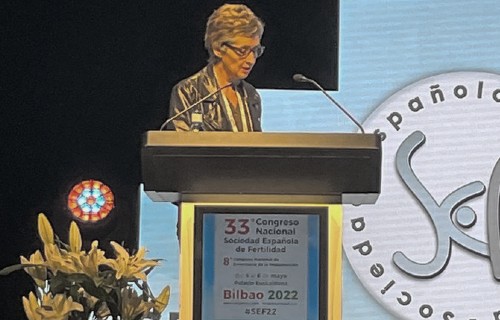
A study led by Dr Francisca Martínez of the Reproductive Medicine Unit of Dexeus Mujer analysed oocyte transcriptomes after two different LH suppression protocols in the same patient: with a GnRH antagonist (ANT) and with progesterone. The aim of the study was to find out whether the administration of progesterone in ovarian stimulation treatments could affect oocyte competence.
Gonadotropin stimulation and LH suppression protocols with progesterone (PP) are gaining acceptance over GnRH antagonist (ANT) suppression because they have several attractive aspects: oral administration versus injections, lower cost of medication, and available evidence from comparative studies showing that a similar total number of oocytes and mature oocytes are obtained with PP as with antagonist.
Despite these apparent advantages, a first randomised clinical trial in egg donors reported unexpectedly inferior reproductive outcomes in recipients of oocytes from cycles with PP (medroxyprogesterone) compared to recipients of oocytes from cycles with an antagonist (ANT). Concern was therefore raised about a possible harmful effect of PP on oocytes.
During stimulation treatments, oocytes undergo final maturation through mRNA accumulation and remodelling that will be used after ovulation and fertilisation to support the early stages of embryonic development. The accumulated mRNA becomes available for translation with final maturation. Final maturation is critical for oocyte quality and competence. Oocyte competence is its ability to sustain embryonic development until embryonic genome activation (EGA).
Therefore, Dexeus Mujer considered that a transcriptome study of vitrified mature donor oocytes comparing the effect of LH suppression using PP versus suppression using ANT might be relevant. In total, 22 oocytes (10 ANT oocytes and 12 PP oocytes) from four donors who underwent donor treatment at Dexeus Mujer between January 2017 and March 2018 were analysed.
The analysis of this unique dataset of oocytes from the same patient revealed that the use of progesterone to control LH surge does not significantly alter oocyte gene expression levels compared to the traditional protocol with GnRH antagonists, suggesting similar oocyte competence between the two protocols.
The work has been awarded at the 33rd National Congress of the Spanish Fertility Society held in Bilbao in May this year.